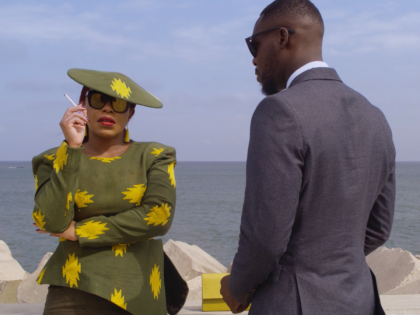
Africa’s lost psychiatrists
Many of the continent’s most highly trained mental health professionals migrate outside Africa. The result, sadly, makes global inequalities in access to mental health, worse.

Many of the continent’s most highly trained mental health professionals migrate outside Africa. The result, sadly, makes global inequalities in access to mental health, worse.

In the Nigerian film 'La Femme Anjola,' which delights with brilliant performances, no one is exactly who they seem.

Academic journals pride themselves on “blind peer-review.” However, what if all that’s blind is the reckoning with inherent systemic discrimination?

Julie Mehretu, an Ethiopian-American painter, defies expectations that artists of color should produce representational work.

The film Adú justly calls attention to Europe’s closed borders, but neglects to examine why people are migrating from Africa.

The increasing visibility of Qur’anic healing in Cairo intersects with psychiatry’s growing foothold in public awareness, creating fertile ground for debates about affliction, care, and expertise.

Muammar Gaddafi occupies a contested space in the histories of postcolonial Africa. What about his Libyan opponents?

Raoul Peck's 'Exterminate All the Brutes' missed the opportunity to engage with the history of colonialism in a way that empowers viewers to imagine a future in which whiteness is not the locus of power and authority.

تكمن فرادة حالة العدمية في أفريقيا كتاريخ وحضارة وشعوب في ارتباطها المتشعب بواقع دموي عنيف من جهة وصيرورة رؤى طوباوية من جهة أخرى، كما يعبر عنه كل من رواية "ذوي الجمال لم يولدوا بعد" للكاتب الغاني ايي كواي أرما وفيلم "آخر أيام المدينة" للمخرج المصري تامر سعيد.

How racialized intellectual outputs placed in just the right circumstances can do the most damage.

Peter Ayodele Curtis Joseph was a prominent left nationalist in Nigeria’s struggle for independence. Then he was forgotten. How do we commemorate him?

Anyone who cares about civil society, free speech, and human rights should find the state’s digital silencing of its citizens deeply troubling.

Mexican American director John Gutierrez new film, set in Cape Town, South Africa, touches on colonialism, displacement, and man’s complicated relationship with nature.

French psychiatry in West Africa saw Black bodies as “alien” to white ones. It hasn't changed much.

An interview with the filmmakers, Ousmane Samassekou and Aïcha Macky, about their films: two stunning documentaries creating new narratives about migration.

There can no longer be false justifications for holding Benin Bronzes, and other pilfered materials, in museums outside of Africa.

A Black South African academic in the United States on breaking the silence on Israeli apartheid in US classrooms and on campuses.

A film about young Rwandan-Canadian creates more questions than it answers, particularly about identification, belonging, and memory.

Episode #39 of AIAC Talk is about exile: a new film on a Libyan dissident and a new exhibition on the black experience. Watch it live Tuesday on YouTube.

Grégory Pierrot’s searing analysis of the deep roots of white supremacy and black exploitation in hipster culture. He also offers a way out of this.